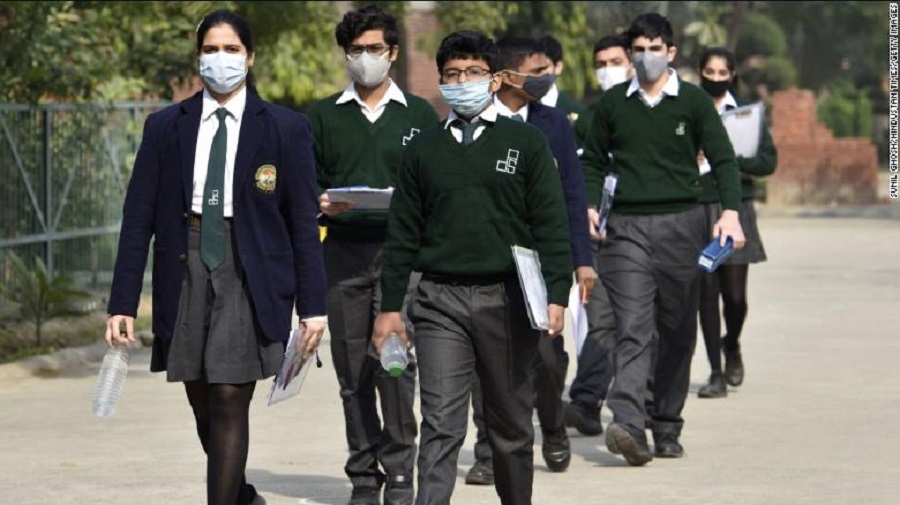
Students leave from an exam center after appearing for the Year 10 social science CBSE examination on November 30 in Noida, India.
High school students in India will be given full marks for a national exam question criticized as "blatantly misogynist" by the country's opposition party.
Parents and social media users also lashed out at India's Central Board of Secondary Education (CBSE), which later apologized for the question and said it would be dropped from the paper with no penalty to students.
The controversial passage was part of the English Language and Literature exam given to Year 10 students (typically 15 to 16 years old) over the weekend, according to CBSE.
Soon after the exams, photos of the questions began circulating on social media. One passage in a reading comprehension section pictured described how women could only "gain obedience from the young" by giving her husband "formal obedience."
Another passage concluded that "the emancipation of the wife destroyed the parent's authority over the children."
The controversial text immediately fueled anger from parents and other online users, who demanded an explanation from educational authorities. Politicians quickly got involved, with many calling for an investigation and an official apology from the board.
"Unbelievable! Are we really teaching children this drivel?" tweeted Priyanka Gandhi Vadra, general secretary of the Indian National Congress party, the country's main opposition party.
Sonia Gandhi, the president of the party, raised the issue in a session of Parliament on Monday, calling the passage "atrocious."
"I raise strong objections to such blatantly misogynist material," she said. "It reflects extremely poorly on the standards of education and testing, and it goes against all norms and principles of a progressive and empowered society."
Soon after, she and other opposition members walked out of the Parliamentary session in protest.
By Monday afternoon, CBSE released a statement announcing that the passage in question did not meet "guidelines of the board."
In a separate statement that evening, the board added that it was "committed to equity and excellence in education," and that it "regrets this unfortunate incident." The board would set up an expert committee to review and strengthen the question-setting process in future, it said.
The exam questions are written by "test setters" appointed by the CBSE chairman, and are required to have a post graduate degree in the academic subject they are writing for. The questions are then reviewed and approved by moderators, also appointed by the CBSE chairman.
Despite the board's quick response, some social media users argued that the damage had already been done, as students across the nation had already been exposed to misogynistic ideas and concepts.
It's not the first time the national exams have come under public fire; earlier this month, the board apologized and retracted another passage about the 2002 Gujarat riots from its social studies exam for addressing issues that "could harm sentiments of people based on social and political choices."











